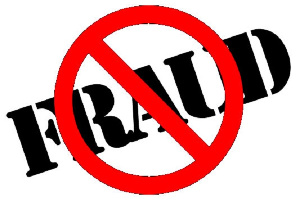 For every import, the GRA has to determine the customs value
For every import, the GRA has to determine the customs value
The Customs Division of the Ghana Revenue Authority (GRA) has urged commercial banks to help the authority determine the real value of imported goods by sharing information on declarations traders make to their banks.
The division said it faces challenges in properly determining the value of imported goods of traders who undervalue or overvalue their invoices.
“The declarations they (traders) make to you in the bank, the transfers that you make on behalf of the traders can be a very good source of information for our determinations and our operations, especially import and export,” said Fechin Akoto, a senior Revenue Officer who spoke on behalf of the Commissioner of Revenue of Customs Division, GRA, at the FBN Bank National Trade Forum in Accra.
He said for every import, the GRA has to determine the customs value — which is governed by World Trade Organisation (WTO) rules and processes — in order to determine the duties payable.
According to him, in instances where sincere declarations are not made by the importer or exporter, it becomes very difficult for Customs to determine the right value in order to levy them.
“When the banks come in, it makes it a little easier for us and even the collection of the revenue,” he said.
Mr. Akoto added that the GRA has gone through a lot of transformation and modernisation over the last few years and now sees importers as partners.
“We treat them more as collaborators. We have a whole joint consultation to iron out our differences and other things, and with the African Continental Free Trade Area (AFCTA) coming in, it gives us a lot more responsibilities to make sure that we implement the agreement to the letter.”
Speaking at the same forum, the chief executive officer of the Association of Ghana Industries (AGI), Seth Twum Akwaboah, said the association has a number of issues with the current tax system.
“We think that [the tax system] is not very supportive of export and local industrial development. But that’s not really the work of Customs; it is at the policy level. So, at the policy level, we still have an issue with the benchmark value policy because we think that it is not positively promoting local industry to be competitive in exports.”
Again, on factors affecting the competitiveness of local industry, he said some importers still do not pay the right duty on their goods but are able to clear them at the port.